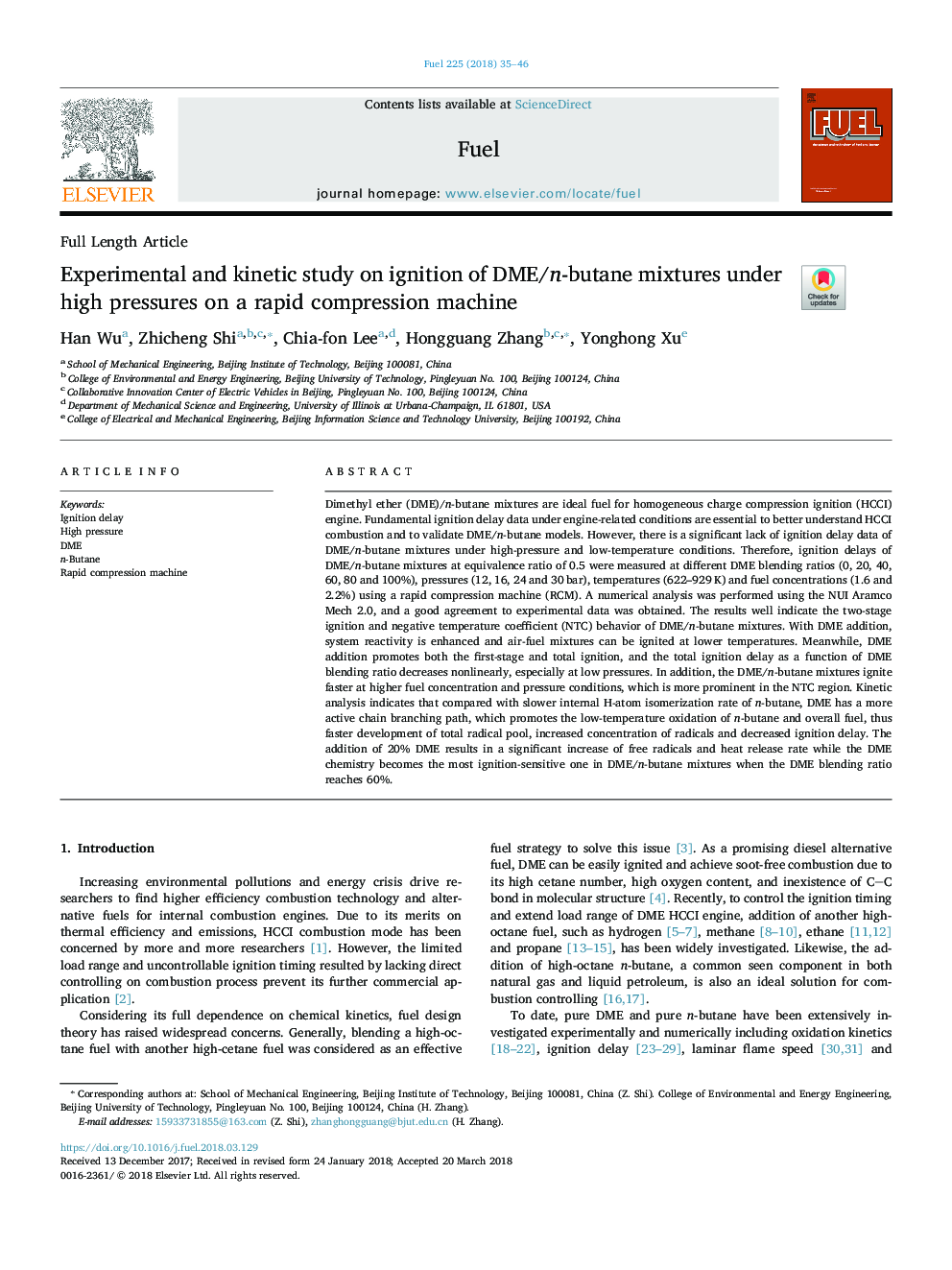| کد مقاله | کد نشریه | سال انتشار | مقاله انگلیسی | نسخه تمام متن |
|---|---|---|---|---|
| 6630972 | 1424939 | 2018 | 12 صفحه PDF | دانلود رایگان |
عنوان انگلیسی مقاله ISI
Experimental and kinetic study on ignition of DME/n-butane mixtures under high pressures on a rapid compression machine
دانلود مقاله + سفارش ترجمه
دانلود مقاله ISI انگلیسی
رایگان برای ایرانیان
کلمات کلیدی
موضوعات مرتبط
مهندسی و علوم پایه
مهندسی شیمی
مهندسی شیمی (عمومی)
پیش نمایش صفحه اول مقاله

چکیده انگلیسی
Dimethyl ether (DME)/n-butane mixtures are ideal fuel for homogeneous charge compression ignition (HCCI) engine. Fundamental ignition delay data under engine-related conditions are essential to better understand HCCI combustion and to validate DME/n-butane models. However, there is a significant lack of ignition delay data of DME/n-butane mixtures under high-pressure and low-temperature conditions. Therefore, ignition delays of DME/n-butane mixtures at equivalence ratio of 0.5 were measured at different DME blending ratios (0, 20, 40, 60, 80 and 100%), pressures (12, 16, 24 and 30â¯bar), temperatures (622-929â¯K) and fuel concentrations (1.6 and 2.2%) using a rapid compression machine (RCM). A numerical analysis was performed using the NUI Aramco Mech 2.0, and a good agreement to experimental data was obtained. The results well indicate the two-stage ignition and negative temperature coefficient (NTC) behavior of DME/n-butane mixtures. With DME addition, system reactivity is enhanced and air-fuel mixtures can be ignited at lower temperatures. Meanwhile, DME addition promotes both the first-stage and total ignition, and the total ignition delay as a function of DME blending ratio decreases nonlinearly, especially at low pressures. In addition, the DME/n-butane mixtures ignite faster at higher fuel concentration and pressure conditions, which is more prominent in the NTC region. Kinetic analysis indicates that compared with slower internal H-atom isomerization rate of n-butane, DME has a more active chain branching path, which promotes the low-temperature oxidation of n-butane and overall fuel, thus faster development of total radical pool, increased concentration of radicals and decreased ignition delay. The addition of 20% DME results in a significant increase of free radicals and heat release rate while the DME chemistry becomes the most ignition-sensitive one in DME/n-butane mixtures when the DME blending ratio reaches 60%.
ناشر
Database: Elsevier - ScienceDirect (ساینس دایرکت)
Journal: Fuel - Volume 225, 1 August 2018, Pages 35-46
Journal: Fuel - Volume 225, 1 August 2018, Pages 35-46
نویسندگان
Han Wu, Zhicheng Shi, Chia-fon Lee, Hongguang Zhang, Yonghong Xu,